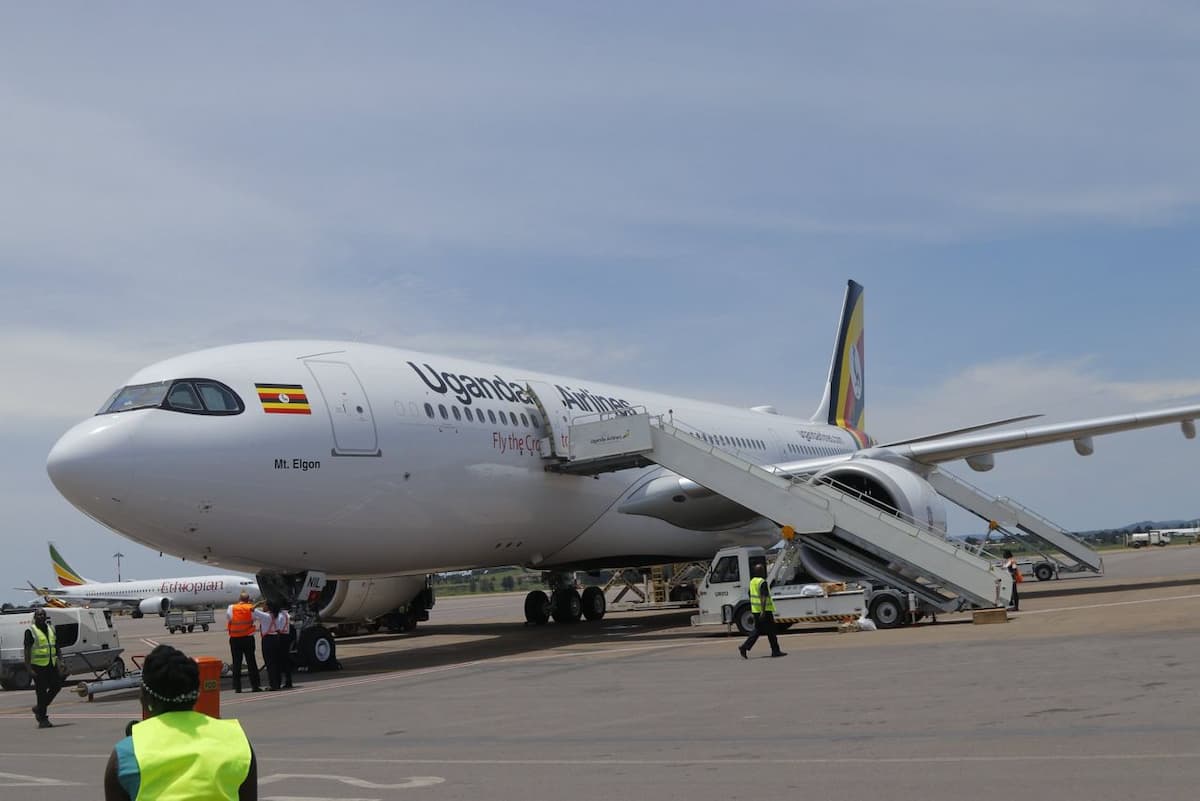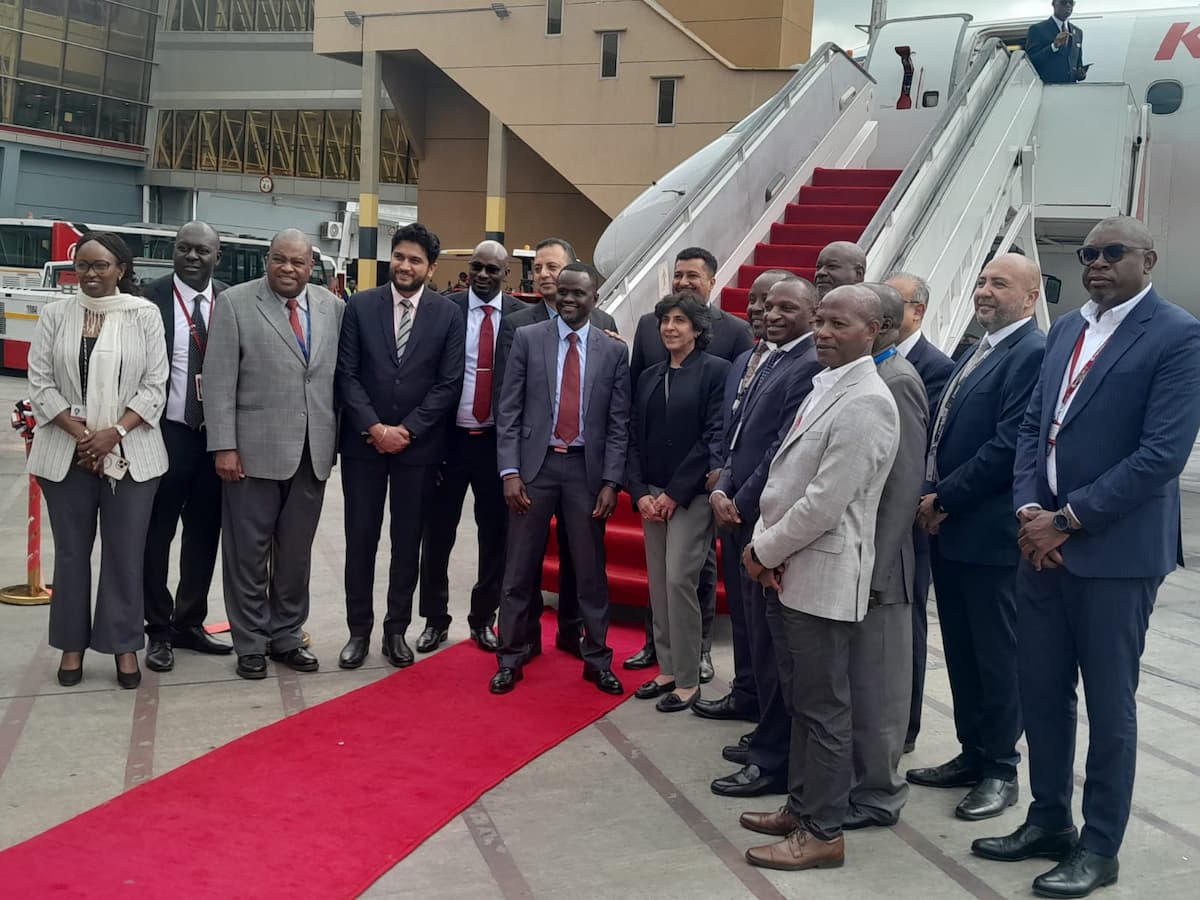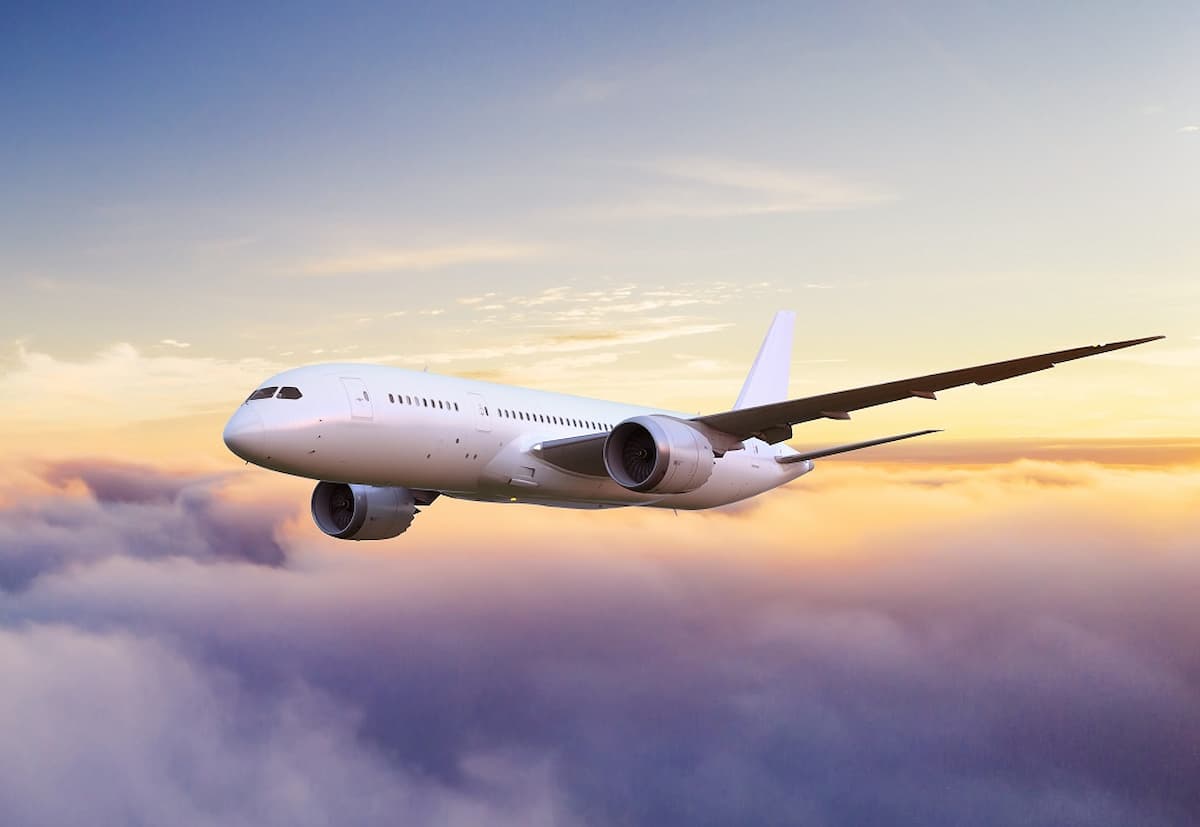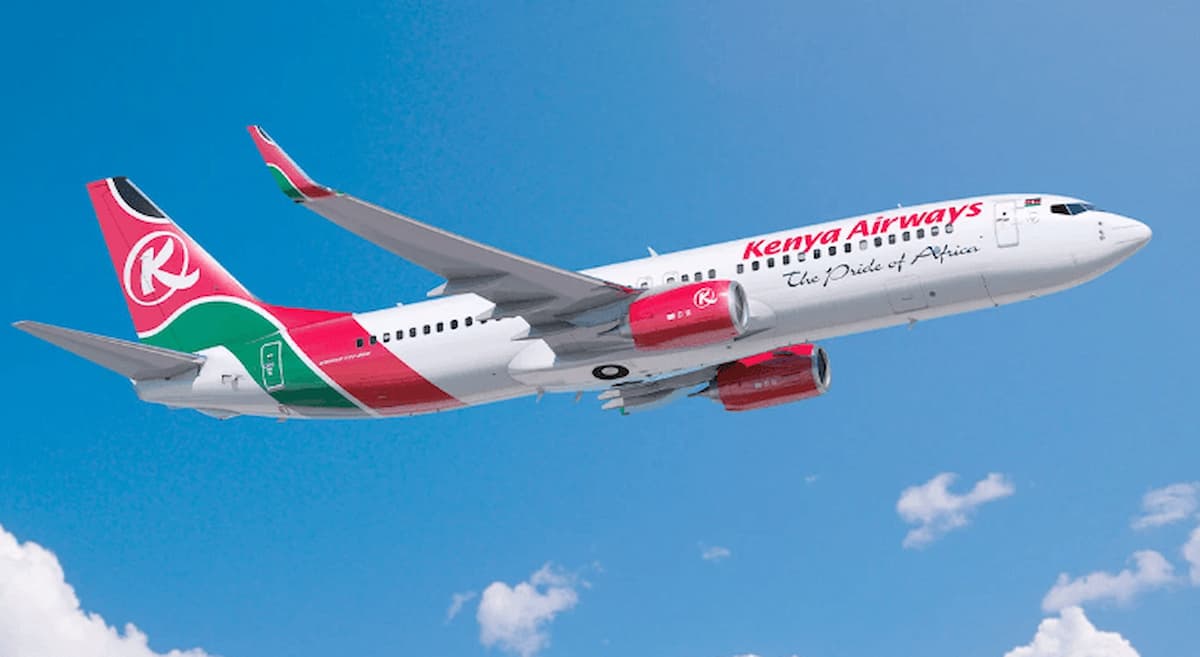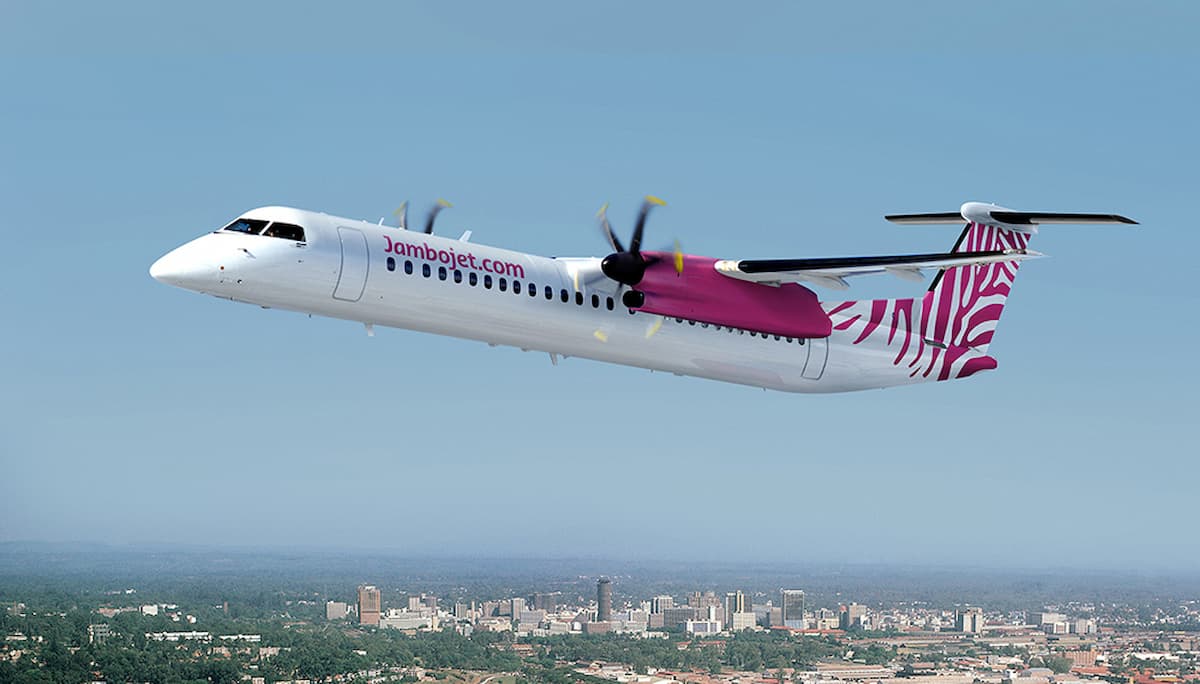Jambojet is a subsidiary of Kenya Airways and has been a prominent low-cost airline in Kenya since its inception on April 1, 2014. With a mission to make air travel affordable and accessible, Jambojet has played a crucial role in transforming the aviation landscape in the region.
Let’s learn more about Jambojet’s history, growth, fleet, destinations, challenges, customer experience, economic impact, and plans of Jambojet. But first, an important introduction…
The older – and wiser – sister, Kenya Airways.
Kenya Airways, founded in 1977, is Kenya’s national carrier and one of Africa’s leading airlines. The airline’s headquarters is in Nairobi, Kenya, and operates from Nairobi’s Jomo Kenyatta International Airport hub. Kenya Airways serves over 50 destinations across Africa, Europe, the Middle East, and Asia, crucial in connecting Africa to the world.
The airline is a member of the SkyTeam alliance, enhancing its global reach through partnerships with other international carriers. Known for its modern fleet and commitment to safety and customer service, Kenya Airways has been pivotal in promoting tourism and business travel in Africa.
The history and growth of Jambojet
Founded to meet the growing demand for budget-friendly air travel, Jambojet took to the skies to offer competitive fares without compromising safety or service quality. The airline’s inaugural flight was on April 1, 2014, and it has grown significantly since then.
By the end of 2022, Jambojet had carried over 1 million passengers and aimed to transport at least 1.2 million passengers in 2023. This remarkable growth underscores the airline’s successful strategy and critical role in Kenya’s aviation. This year the airline celebrated carrying over 1.4 million passengers!
Jambojet fleet
Jambojet’s fleet consists of Bombardier Dash 8-Q400 aircraft, which are efficient and suitable for short-haul routes. As of January 2024, the airline operates eight of these aircraft. Initially, Jambojet used Boeing 737-300s but transitioned to the more modern and fuel-efficient Dash 8-Q400s to optimize operational efficiency and reduce costs.
The airline’s destinations
Jambojet serves a mix of domestic and international destinations. Domestically, the airline connects major Kenyan cities, including Nairobi, Mombasa, Kisumu, Eldoret, Malindi, Lamu, and Ukunda.
Internationally, Jambojet flies to Goma in the Democratic Republic of Congo and plans to expand further with new routes like Zanzibar City in Tanzania starting in July 2024. The airline’s ability to offer frequent and reliable flights to these destinations has made it a key player in the region’s air travel market.
Operational challenges and adaptations
The region’s COVID-19 pandemic posed unprecedented challenges for the global aviation industry, and Jambojet was no exception. Due to reduced passenger demand and travel restrictions, the airline had to suspend operations at some international destinations, including Kigali and Entebbe.
However, Jambojet demonstrated resilience by adapting its business model. One significant adaptation was diversifying into cargo operations, which provided an alternative revenue stream during reduced passenger travel. This strategic pivot helped the airline navigate the pandemic and positioned it for future growth.
The customer experience on Jumbojet
Jambojet prioritizes customer satisfaction. The airline offers various services to enhance the travel experience, including flexible booking options, online check-in, and a frequent flier program. This program allows passengers to earn and redeem flight points, adding value for regular travelers.
Additionally, Jambojet is committed to punctuality and safety, which has earned it a strong reputation among passengers. The airline’s focus on delivering a positive customer experience is evident in the airline’s high passenger load factors and positive reviews.
Future plans
Jambojet’s operations have had a significant positive impact on Kenya’s aviation sector. The airline facilitates tourism and supports various ancillary businesses within the aviation sector.
Employing over 200 people, Jambojet contributes to the region’s job creation and economic development. The airline’s affordable fares have made air travel accessible to a broader population, promoting excellent connectivity and economic integration within Kenya and the wider East African region.
Looking ahead, Jambojet has ambitious plans to expand its route network and increase its fleet size to meet the growing demand for air travel. Introducing new routes, such as the planned service to Zanzibar City, reflects the airline’s strategy to tap into new markets and enhance its competitive edge. Furthermore, Jambojet’s focus on fleet modernization and operational efficiency is optimistic that it will achieve sustainable growth in the coming years.
A niche yet essential product for the east African market
Jambojet has successfully established itself as a leading low-cost carrier in Kenya and East Africa. The airline’s commitment to affordability, reliability, and safety has made it the preferred choice for many travelers.
Despite the challenges posed by the COVID-19 pandemic, Jambojet has demonstrated resilience and adaptability, ensuring its continued growth and relevance in the aviation industry. As it continues to expand its operations and enhance its services, Jambojet is poised to play an even more significant role in making air travel accessible to all.
Whether you are a frequent flier or planning your first trip, Jambojet offers a comprehensive and customer-centric travel experience that caters to the needs of modern travelers. With its strategic vision and commitment to excellence, Jambojet is set to soar to new heights.
Source: Simple Flying





